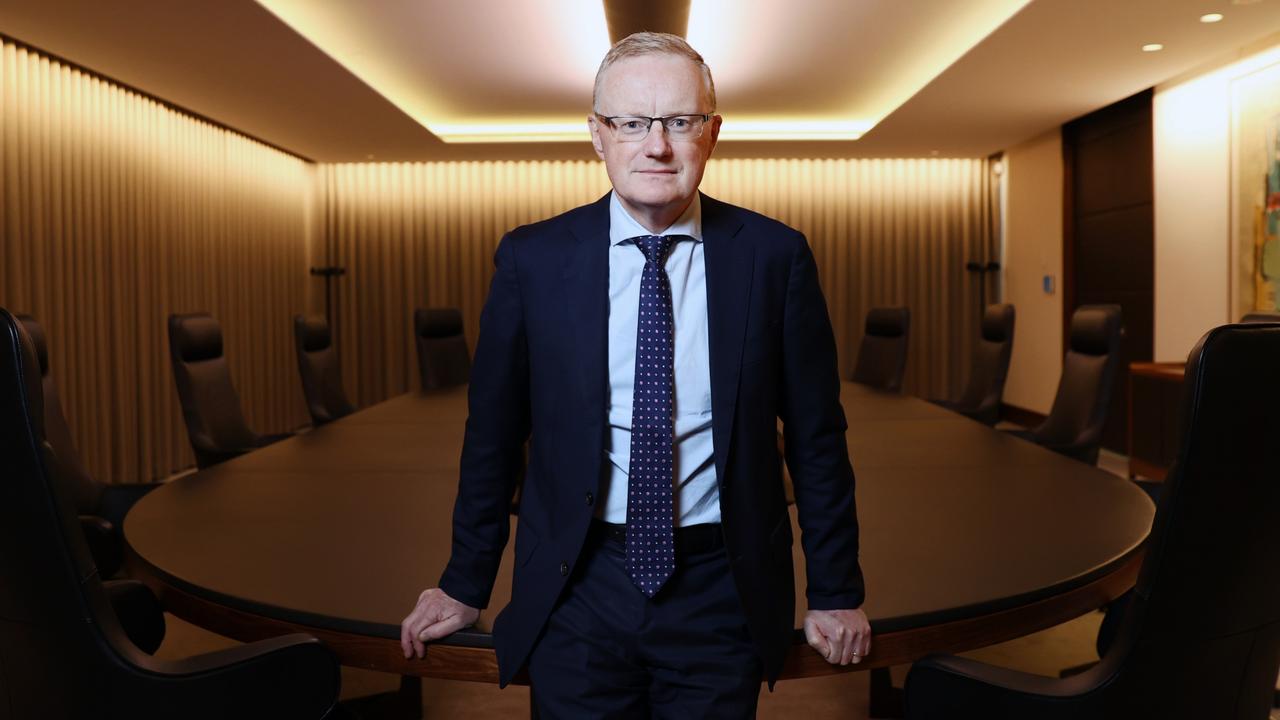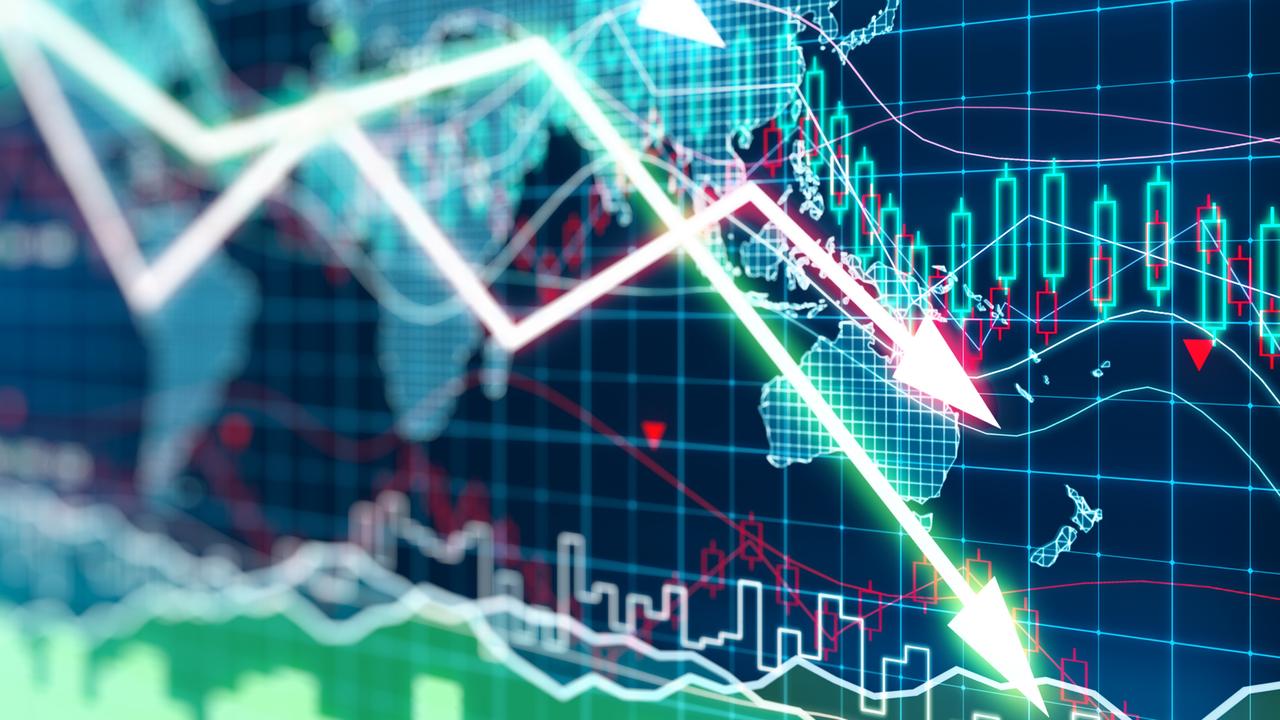‘Two evils’: Alarming reality behind Reserve Bank’s big interest rate gamble
Interest rates are soaring and there are growing fears a recession could be around the corner. So why is the RBA doing this to us?
As Australia reels from the Reserve Bank’s latest double-whammy interest rate hike, there are rising fears that the economy is in serious trouble, with crashing house prices and even a recession on the horizon.
It all started in May, when the RBA announced the first official interest rate hike since 2010, lifting the cash rate by 25 basis points to 0.35 per cent.
A month later, the RBA sent chills down the spines of homeowners again with a “super-sized” rate rise of 50 basis points, followed by yet another 50 basis point jump this week, with the cash rate now sitting at 1.35 per cent.
But now that the shock has started to wear off and Aussies face the reality of seemingly endless rate hikes to come, attention is turning to why the RBA is doing this to us – especially given the risks seem to be so alarmingly high.
Recession fears
For months now, we’ve heard that rising interest rates could push down house prices, with the RBA estimating in its latest Financial Stability Review “that a 200-basis-point increase in interest rates from current levels would lower real housing prices by around 15 per cent over a two-year period”.
At the same time, consumer confidence has tanked to its lowest level since the recession of the 1990s, barring one blip at the start of the pandemic, with some fearing spooked families with less money in their pockets will simply stop spending entirely, which could help to push the country into recession.
So why is the RBA acting so aggressively?
Stream more finance news live & on demand with Flash. 25+ news channels in 1 place. New to Flash? Try 1 month free. Offer ends 31 October, 2022 >

Economist Shane Oliver told news.com.au the RBA was weighing up the risks of not doing enough and allowing inflation to get out of control, or raising rates now and causing some short-term pain to avoid a worse disaster.
“They’re raising rates because inflation is high and seems to have gotten worse since May when they started [raising rates], particularly with power price increases. Then, they predicted the inflation would peak at 6 per cent, and now they’ve revised it up to 7 per cent,” he said.
“That led to more aggressive increases starting in June and continuing in July, because they’re more worried that the longer inflation stays high, the longer people will expect it to stay high, which gets built into wage and price settings and ends in a 1970s-style wage price spiral.
“They are tightening more aggressively, because there’s a more severe inflation problem.”
He said that if inflation did start to slow down, the RBA could stop raising rates sooner than expected, before the predicted cash rate peak of more than 3 per cent.
Dr Oliver acknowledged that for many Aussies, it was confusing to watch the RBA continue to raise interest rates amid rising recession fears and falling house prices.
He pointed to recent comments from US Federal Reserve chain Jerome Powell, who said the central bank would “tolerate” a recession in order to rein in inflation, and said the RBA was all about balancing risks.
“If you look to the 1970s, there were several recessions and stagflation with very weak economic growth, rising high unemployment and high inflation, and the consensus from that period was that high inflation was pretty bad for the economy, jobs and investment markets,” he said.

“You could make the argument that it’s better to go high and cause a little bit of pain now, even if it causes a short-term recession, to avoid a rerun of the 1970s.
“If inflation gets out of control, it will lead to worse outcomes than just one recession, so in the longer term the country will be better off,” he said. “It sounds a bit heartless because recessions raise unemployment, but if inflation gets out of control, unemployment could be higher for a longer period.”
However, he acknowledged that the RBA was taking a risk.
“It’s like tapping the brakes on a car, if you keep tapping, eventually it will stop, and the economy is the same – if you keep raising the rates eventually the economy will stop, and that’s why people are worried about it,” he said.
“But in the 1970s there was a Misery Index which rated inflation and unemployment and found inflation was as hated as unemployment – unemployment only affects the unemployed, but inflation affects everyone.”
Dr Oliver said consumer confidence had recently fallen to levels usually associated with recession, with the soaring cost of living already whittling down household purchasing power as our wages go backwards.
“Unemployment sounds worse [than inflation], but for the average person who still has a job, you could argue that high inflation is a bigger problem because it means a decline in living standards, and central banks have to weigh that all up,” he said.
“The RBA is weighing up two evils … but they let inflation get out of control, it’s the worst of both worlds – living standards go back because you can’t spend more and unemployment is high anyway.”
Fellow economist Chris Richardson agreed inflation was a “thief in the night” and that when prices moved fast regularly it caused “all sorts of problems” for people from all walks of life, which is why the RBA was fighting it so hard.
“Inflation is bad news for a lot of people – we really don’t want inflation to hang around, so the RBA has to steer the course between two paths, between going too fast and making the economy slow too much, which means unemployment goes up … or going too slow, and inflation hangs around and needs to be throttled out of the economy,” he said.
“Going too slow now could mean higher rates hang around for longer – one risk is recession, and the other is stagflation.
“The question is how much does the Australian economy need to slow down to make sure we’re not stuck with an ongoing problem?”






